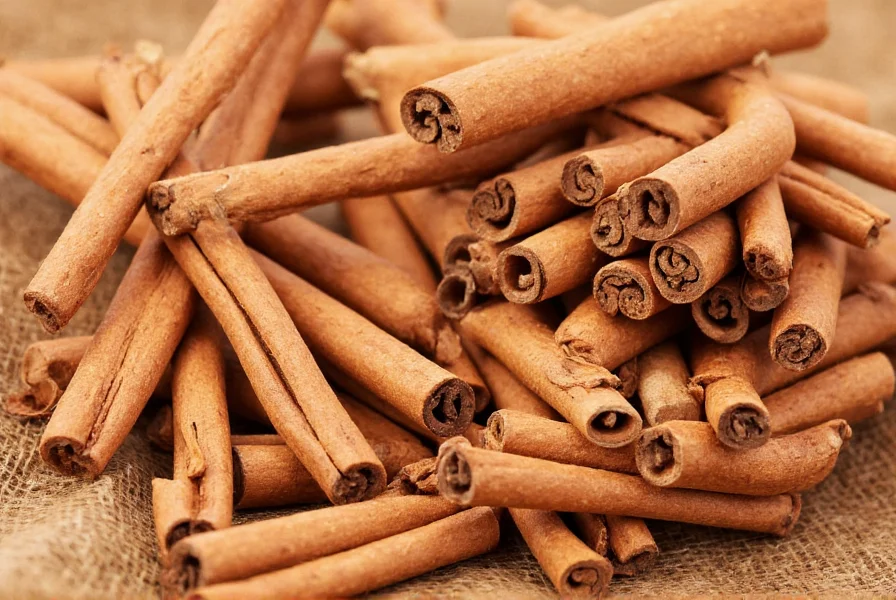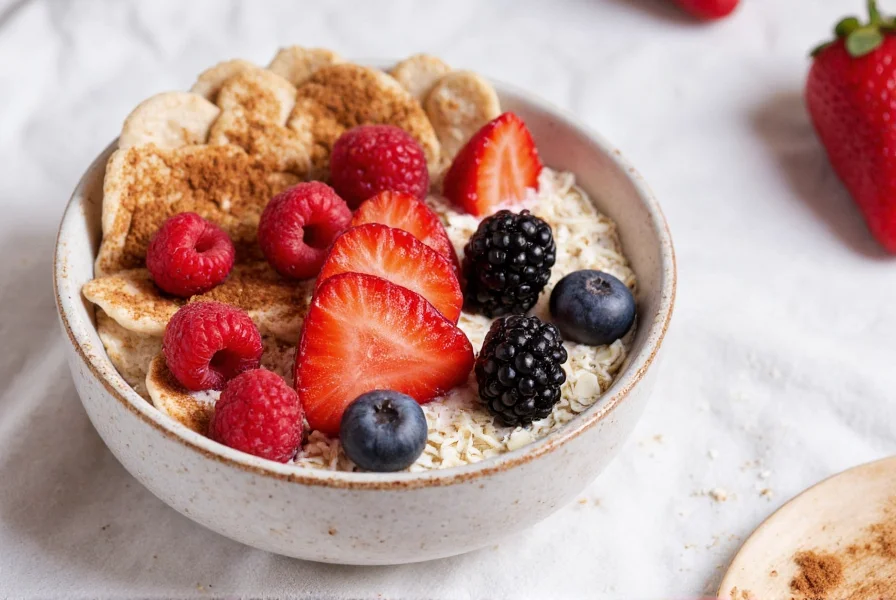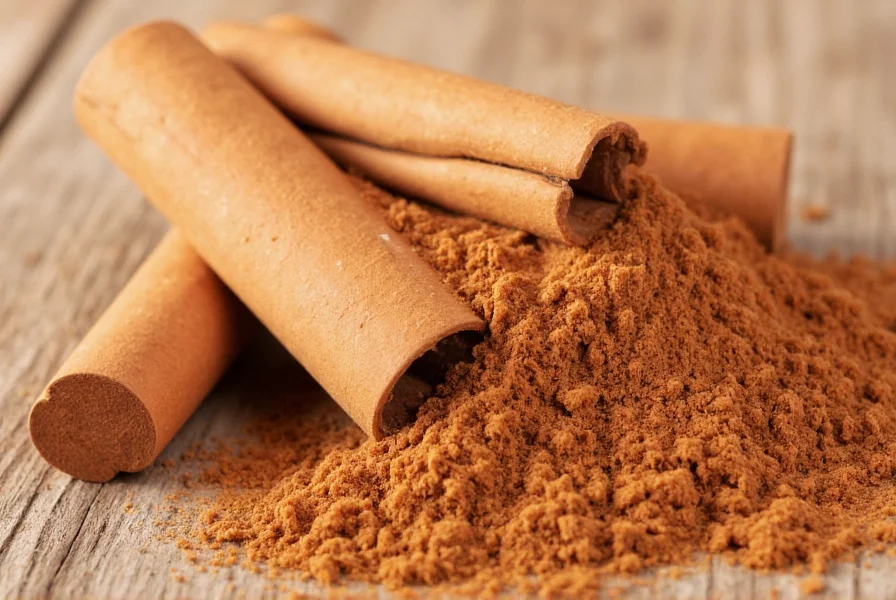Cinnamon has been used for centuries not just as a flavorful spice but also for its potential health properties. As research continues to uncover the science behind this ancient remedy, many people wonder: is cinnamon good for you? Let's examine the evidence-based benefits, potential risks, and practical recommendations for incorporating this spice into your diet.
Understanding Cinnamon Types: Ceylon vs Cassia
Not all cinnamon is created equal. The two primary varieties available are:
| Characteristic | Ceylon Cinnamon | Cassia Cinnamon |
|---|---|---|
| Also known as | "True" cinnamon | Chinese cinnamon |
| Appearance | Multiple thin, soft layers | Thick, hard single卷 |
| Coumarin content | Very low (0.004%) | High (5-10%) |
| Price | More expensive | Less expensive |
| Availability | Less common in supermarkets | Most common in supermarkets |
The distinction between these types is crucial when evaluating is cinnamon good for your health, as their chemical compositions differ significantly.
Science-Backed Health Benefits of Cinnamon
Blood Sugar Regulation
One of the most researched benefits relates to how cinnamon affects blood sugar levels. Multiple studies indicate that cinnamon may improve insulin sensitivity and lower blood glucose levels. A comprehensive review published in the Journal of the Academy of Nutrition and Dietetics found that cinnamon supplementation significantly reduced fasting blood glucose levels in people with type 2 diabetes.
When examining is cinnamon good for diabetes management, researchers believe cinnamon's active compounds may mimic insulin and enhance glucose uptake by cells, though more long-term human studies are needed.
Powerful Antioxidant Properties
Cinnamon ranks among the spices with the highest antioxidant activity. Research shows it contains numerous polyphenols that combat oxidative stress. In fact, a study comparing the antioxidant capacity of 26 spices found cinnamon ranked #1, even surpassing garlic.
These antioxidants contribute to cinnamon's potential role in reducing oxidative damage linked to chronic diseases. When considering is cinnamon good for preventing chronic conditions, its antioxidant profile suggests potential protective effects.
Natural Anti-Inflammatory Effects
Chronic inflammation contributes to many diseases, and cinnamon demonstrates notable anti-inflammatory properties. The compound cinnamaldehyde appears responsible for many of these effects.
Research published in Food Chemistry indicates that cinnamon extracts can inhibit inflammatory responses at the cellular level. This supports the question of is cinnamon good for reducing inflammation in the body.
Heart Health Potential
Several studies suggest cinnamon may positively impact heart disease risk factors. Research shows it can reduce levels of total cholesterol, LDL ("bad") cholesterol, and triglycerides while maintaining HDL ("good") cholesterol levels.
When evaluating is cinnamon good for cardiovascular health, these findings suggest potential benefits, though more extensive human trials are necessary to confirm these effects.

Potential Risks and Considerations
Coumarin Content in Cassia Cinnamon
The primary concern when asking is cinnamon bad for you in certain circumstances relates to coumarin, a natural substance found in higher concentrations in Cassia cinnamon. Excessive coumarin intake may cause liver damage in sensitive individuals.
The European Food Safety Authority established a tolerable daily intake of 0.1 mg of coumarin per kilogram of body weight. For a 150-pound person, this equals approximately:
- 1 teaspoon (2.5 grams) of Cassia cinnamon
- Over 15 teaspoons (37.5 grams) of Ceylon cinnamon
Medication Interactions
Cinnamon may interact with certain medications, particularly those affecting blood sugar or blood thinning. People taking diabetes medications should monitor blood sugar closely when adding significant amounts of cinnamon to their diet.
When considering is cinnamon safe with medications, consult your healthcare provider if you're on prescription drugs, especially blood thinners or diabetes medications.
Allergic Reactions
Though rare, some individuals may experience allergic reactions to cinnamon, particularly when used topically. Oral consumption typically causes fewer issues, but sensitivity can occur.
Recommended Consumption Guidelines
For those wondering how much cinnamon is good for you, most studies showing benefits used 1-6 grams (about 1/2 to 2 teaspoons) daily. However, the safe amount depends on the type:
- Cassia cinnamon: Limit to 1 teaspoon (2.5 grams) daily for most adults
- Ceylon cinnamon: Up to 1-2 teaspoons (5-10 grams) daily appears safe for most people
For long-term daily use, Ceylon cinnamon is generally recommended due to its significantly lower coumarin content. When evaluating is cinnamon good for daily consumption, the type and amount matter considerably.
Practical Ways to Enjoy Cinnamon Safely
Incorporating cinnamon into your diet can be simple and delicious. Here are evidence-based suggestions for how to use cinnamon for health benefits:
- Add to morning oatmeal or yogurt (1/4-1/2 teaspoon)
- Stir into coffee or tea instead of sugar
- Sprinkle on roasted vegetables like sweet potatoes
- Use in homemade baked goods to reduce sugar content
- Make cinnamon tea by steeping sticks in hot water

Conclusion: Is Cinnamon Good for You?
The answer to is cinnamon good for your health is generally yes—but with important qualifications. Cinnamon, particularly the Ceylon variety, offers several science-supported health benefits when consumed in appropriate amounts. Its potential effects on blood sugar regulation, antioxidant protection, and inflammation reduction make it a valuable addition to a balanced diet.
However, excessive consumption of Cassia cinnamon may pose risks due to its coumarin content. For those regularly using cinnamon for health purposes, choosing Ceylon cinnamon and limiting daily intake to 1-2 teaspoons provides the optimal balance of benefits and safety.
As with any dietary change, consult with a healthcare provider if you have specific health conditions or concerns, especially if considering cinnamon supplementation for therapeutic purposes.











 浙公网安备
33010002000092号
浙公网安备
33010002000092号 浙B2-20120091-4
浙B2-20120091-4